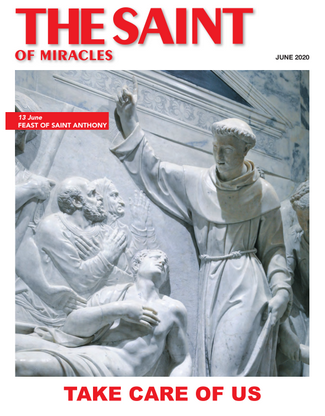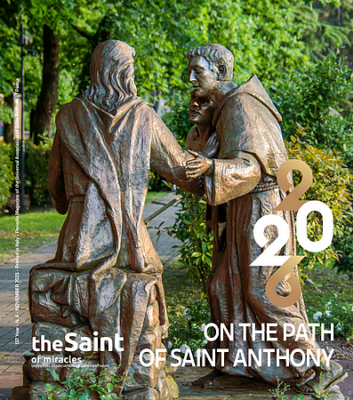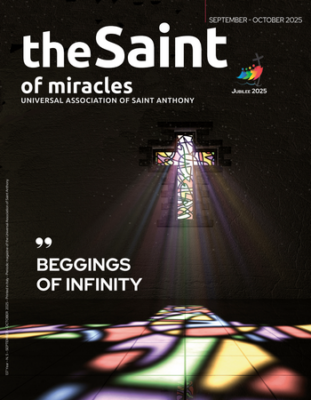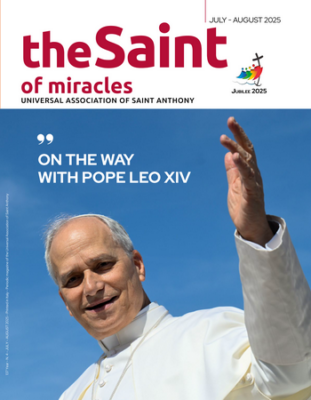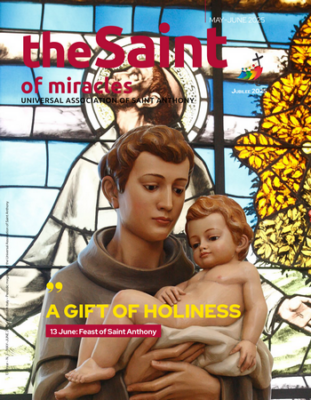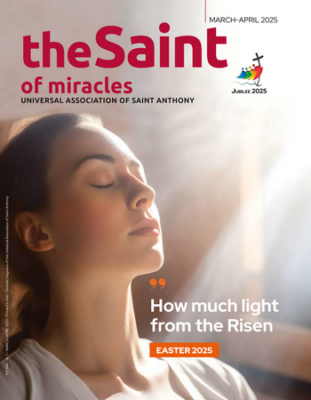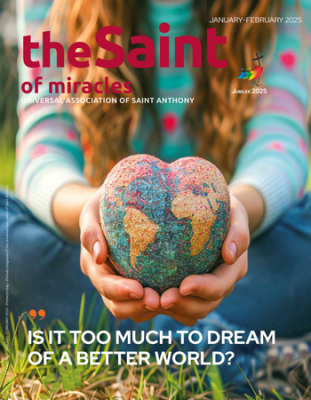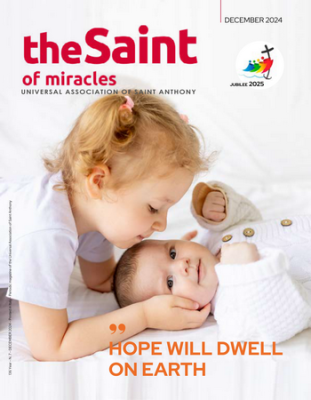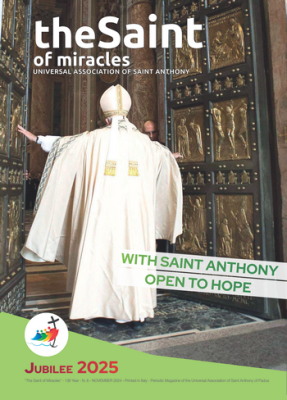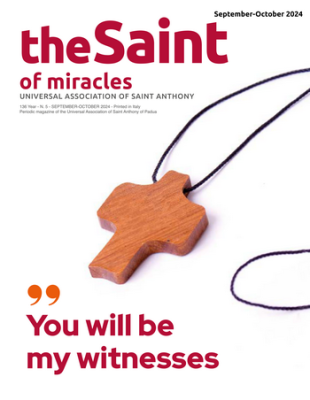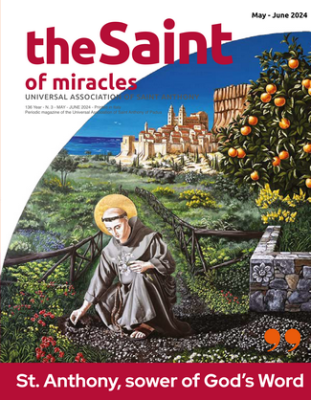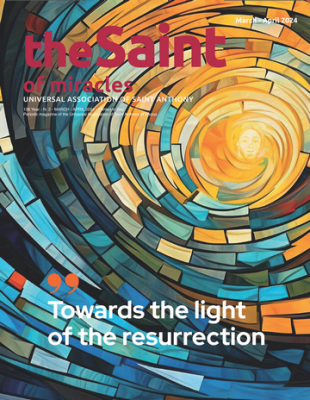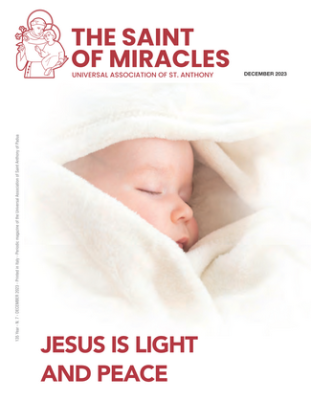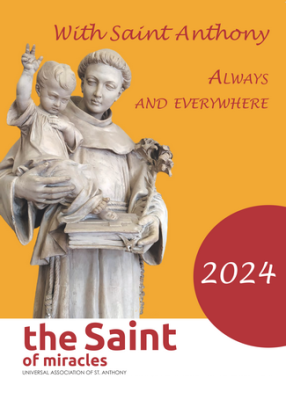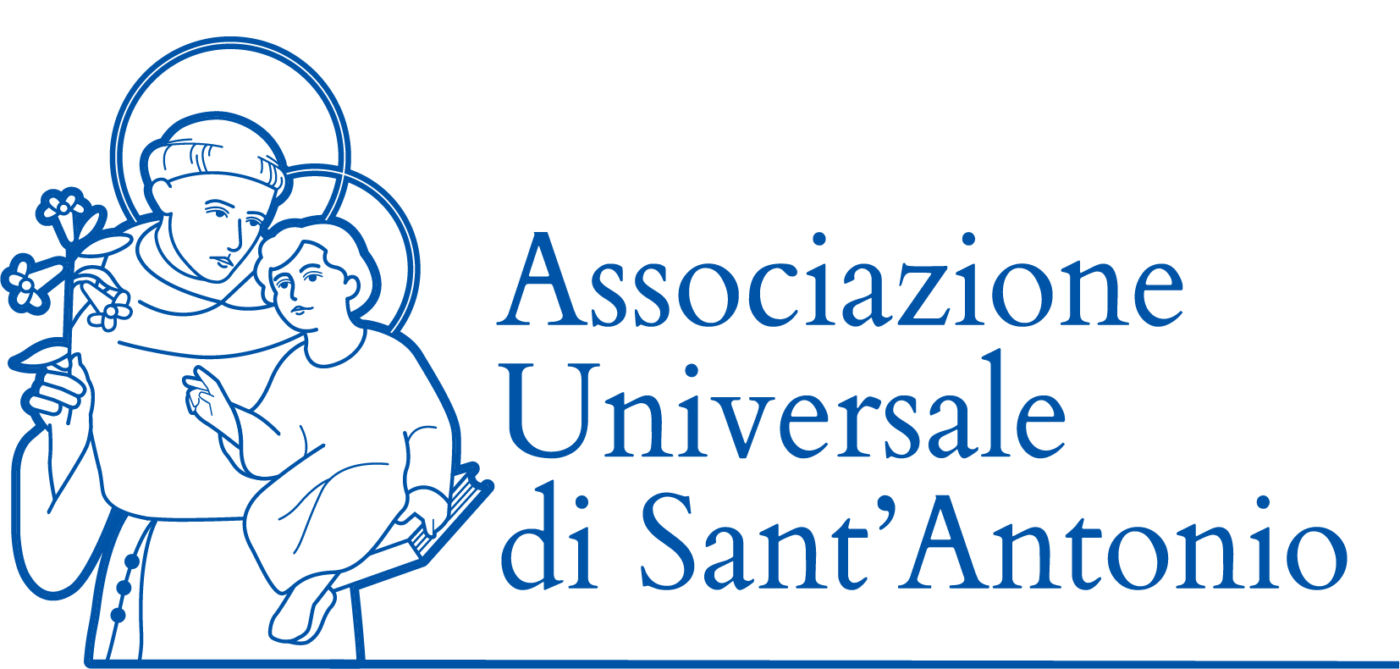Year 132 - June 2020Find out more
Popular effervescences of the Spirit
Fr. Livio Tonello, director

You never get tired of wondering at the great devotion to Saint Anthony. A veneration that knows no crisis. It’s visible in the great feast of 13 June as well as in the daily pilgrimages or in the images present in every church in the world. We call it popular devotion, but it has nothing minimal. In the expressions of feelings of affection we recognize a noble form of faith. It’s what Pope Francis in his exhortation Evangelii gaudium of 2013 defines as “a true expression of the spontaneous missionary activity of the people of God… an ongoing and developing process, of which the Holy Spirit is the principal agent (no. 122).
It manifests a thirst for God which only the poor and the simple can know… and enables us to see how the faith, once received, becomes embodied in a culture and is constantly passed on. (no. 123). Expressions of popular piety have much to teach us; for those who are capable of reading them, they are a locus theologicus (no. 126)”. Unequivocal affirmations that we can also attribute to the deep attachment to the Saint of Padua. Sometimes there is a request (a grace, a miracle), in others gratitude (ex voto), there is sympathy and affection, there is the imitation of a model of Christian life... Faith finds its source and vitality in Anthonian devotion by revealing the breath of the Spirit which inflates the lungs of believers.
It is a manifestation of faith, in popular form, simple but high, expression of deep-rooted and convinced spiritual convictions. Which always leave you amazed! In the age of technology and science, can there still be those who rely on a person who lived 800 years ago? Are gestures and entreaties towards an image, a statue, an effigy reasonable? Reasonableness lies in the observation that feelings and emotions inhabit the human person and transcend any scientific explanation. They are, however, connatural, a manifestation of this that words can’t explain. They are now part of a collective feeling that is not wrong to believe. Lived together they build a people in the highest form of God’s intentions. “We are never completely ourselves unless we belong to a people.
That is why no one is saved alone, as an isolated individual. Rather, God draws us to himself, taking into account the complex fabric of interpersonal relationships present in a human community” (Gaudete et exsultate no. 6). We are not surprised, then, by these collective and varied “spiritual effervescences”. Our capacity for affection makes us human and frees us from the presumption that we possess every response and dominate every event on earth even if we look up to heaven. “The stars are the saints, whom Christ shuts up under the seal of his providence, so that they may not appear when they will, but are always ready for the time set by God; so that when they hear with their heart’s ear the voice of their Master, they may go out from the secrecy of contemplation to the work that needs to be done” (Saint Anthony, Sermon of the Fifth Sunday after Easter).


 Italiano
Italiano Français
Français